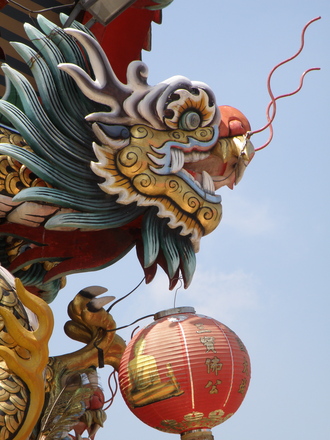

LIKE the EPO, here in the UK we have UK-IPO (or just IPO for short), whose record on software patenting we wrote a lot about 8 years ago, particularly in relation to a case of Nokia (or Symbian at the time). It often feels like the policy at the IPO is steered not by British interests but by a bunch of greedy patent lawyers, who are conveniently besieging the British industry for money derived from legal fees, not innovation, development and so on.
"It often feels like the policy at the IPO is steered not by British interests but by a bunch of greedy patent lawyers, who are conveniently besieging the British industry for money derived from legal fees, not innovation, development and so on."Based on a sponsored 'report' from IAM the IPO gave a Patent Prosecution Highway to China, where patent quality is notoriously poor (probably worse than even at the USPTO). But don't worry; when Chinese companies start going after British companies (as they increasingly do in the US and especially in Texas) the patent lawyers will be the ones pocketing lots of money.
Much of what we saw Battistelli doing with SIPO (China's, not Croatia's) is going to cost Europe a lot in the long run. As is apparent from Battistelli's policies in a variety of areas, short-term thinking and temporary gains are a priority right now (must be ENA 'logic') as he won't be around to pick up the pieces as everything start to rattle and break.
Looking at IAM this past week, patent armament is becoming somewhat of a thing and Asian countries (other than China) are now buying the West's patents as a matter of strategy/policy. As IAM put it: "It is hard to think of a better example of the ‘transition state’ described by Komiya than Softbank’s recently announced $23 billion takeover bid for UK-based chip designer ARM. Here is a massive investment by a company which started as a traditional telecom into a foreign business that is built entirely on developing and licensing intellectual property. It has also been framed by Softbank chief Masayoshi Son as a major push into the Internet of Things, an area highlighted by Komiya in his address as an “urgent challenge” for Japanese companies to adapt to if they want to remain competitive in the high-tech space. [...] Whether in the form of IP-focused acquisitions like the ARM deal or licensing campaigns like that pursued by IP Bridge, the gradual shift in the Japanese IP environment looks set to continue."
"Huawei (China) is already using its patents to go after companies in the US, not just in Korea."ARM makes a lot of its money from licensing, not production. So we can expect money to flow to Asia, not only for production but also for patents. Where does this leave the bubble or the illusion that using patents we can still maintain economic might (while outsourcing all production to the East)? According to Neil Wilkof, patent litigation is becoming somewhat a branding tool. Citing the Huawei v Samsung case (Wilkof's colleague, Darren Smyth, wrote about Hospira v Genentech, which is less relevant to us), he writes: "Provided that the U.S. law suit does not go the way of the Apple-Samsung dispute, and Huawei is viewed as overplaying its IP hand, or otherwise is seen in a negative light, there is the potential for substantial upside in brand recognition of its smartphones in the vast U.S. market. Indeed, such a benefit may ultimately be much more significant for the company than matters of injunctions and monetary damages. Indeed, patent litigators might consider taking a program or two at their local school of management to learn more about the dynamics of brand-building, and how patent litigation can contribute to this process."
Huawei (China) is already using its patents to go after companies in the US, not just in Korea. Apple's patent feuds with Samsung have just made headlines in Western media, saying that "Apple Inc (AAPL.O) on Friday asked the U.S. Supreme Court to clear the way for the iPhone maker to secure hundreds of millions in damages from Samsung Electronics Co Ltd (005930.KS) in a case over smartphone design patents.
"The world's top smartphone rivals have been feuding over patents since 2011, when Apple sued Samsung in a northern California court alleging infringement of the iPhone's patents, designs and trademarked appearance."
"We need to reassess the motivation/s of patent maximalism and rethink the laws; the same goes for copyright in the Internet era, but for different reasons."Apple's market share in phones has just fallen more than 20% (see our daily links). Apple distracts from that by stating it sold a billion 'i' phones, but numbers suggest that Android OEMs like Huawei and Samsung is where most of the action (even growth) is. Whether Western companies can at all remain competitive -- even with lots patents at hand -- remains questionable. Asia is now turning the West-leaning patent system against the West, so patent maximalism in its own right won't be sufficient for maintaining Western dominance. Only patent law firms would gain. I am not personally prejudiced against east Asia (my wife in fact is east Asian), but repeating the old talking points about the essence of patents for "countering Asia" is doing a disservice to truth itself. We need to reassess the motivation/s of patent maximalism and rethink the laws; the same goes for copyright in the Internet era, but for different reasons.
As is noted in more and more sites, China is now exploiting the same loopholes previously enjoyed mostly by patent trolls. This will only get worse in years to come. ⬆